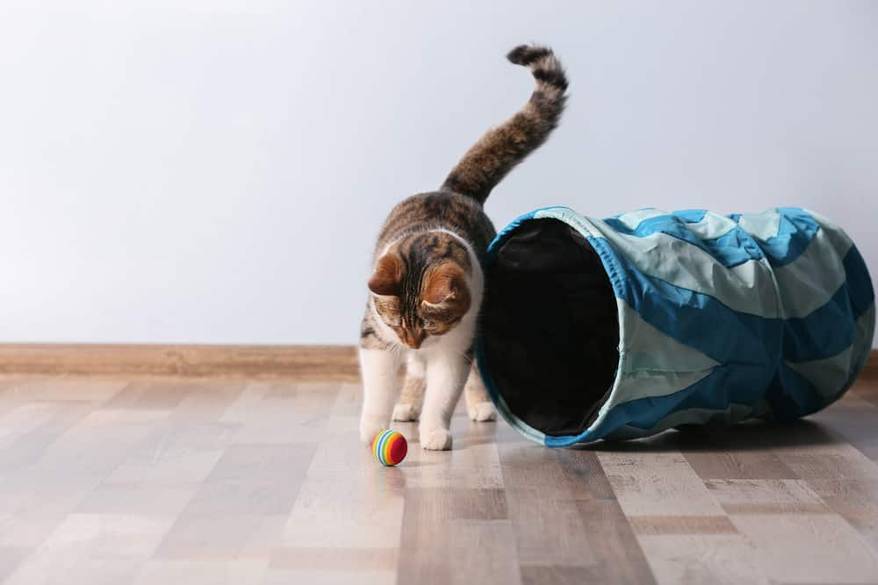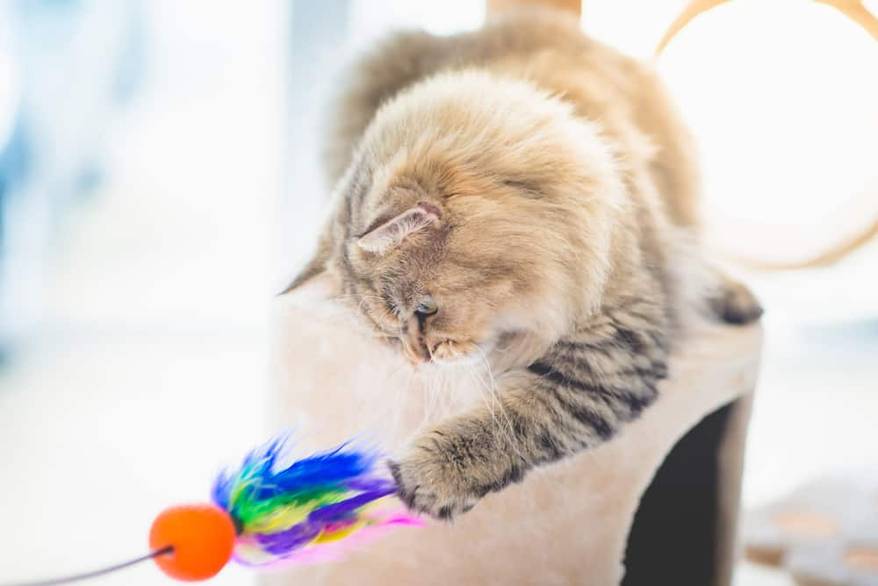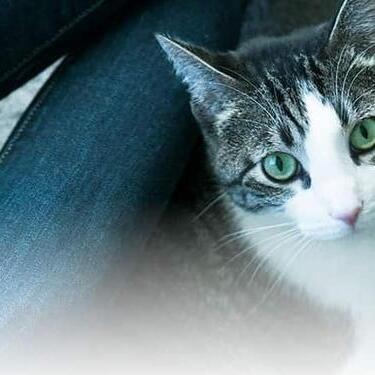
-
Find the right food for your pet
Take this quiz to see which food may be the best for your furry friend.
Find the right food for your pet
Take this quiz to see which food may be the best for your furry friend.
Featured products
 Small & Mini Savory Stew with Chicken & Vegetables Dog Food
Small & Mini Savory Stew with Chicken & Vegetables Dog FoodA delicious complement to the nutrition of Science Diet Small & Mini 7+ dog food
Shop Now Adult 7+ Perfect Digestion Chicken, Whole Oats & Brown Rice Recipe Dog Food
Adult 7+ Perfect Digestion Chicken, Whole Oats & Brown Rice Recipe Dog FoodScience Diet's breakthrough nutrition supports ultimate digestive well-being & healthy microbiome for dogs age 7+
Shop Now Adult Healthy Cuisine Roasted Chicken, Carrots & Spinach Stew Dog Food
Adult Healthy Cuisine Roasted Chicken, Carrots & Spinach Stew Dog FoodDelicious roasted chicken paired with tender vegetables in a succulent stew
Shop NowFeatured products
 Adult 7+ Tender Tuna Dinner Cat Food
Adult 7+ Tender Tuna Dinner Cat FoodWith delicious chunks in a decadent gravy
Shop Now Adult Savory Entrée Can Variety Pack Cat Food
Adult Savory Entrée Can Variety Pack Cat FoodPrecisely balanced nutrition with the delicious taste of savory minced chicken to help fuel the energy needs of cats during the prime of their life
Shop Now Adult 7+ Senior Vitality Chicken & Vegetable Stew Cat Food
Adult 7+ Senior Vitality Chicken & Vegetable Stew Cat FoodImproves Everyday Ability to Get Up & Go
Shop Now -
Dog
- Dog Tips & Articles
-
Health Category
- Weight
- Food & Environmental Sensitivities
- Urinary
- Digestive
- Joint
- Kidney
-
Life Stage
- Puppy Nutrition
- Adult Nutrition
- Senior Nutrition
Cat
- Cat Tips & Articles
-
Health Category
- Weight
- Skin & Food Sensitivities
- Urinary
- Digestive
- Kidney
-
Life Stage
- Kitten Nutrition
- Adult Nutrition
Featured articles
 Do Dogs and Cats have Belly Buttons?
Do Dogs and Cats have Belly Buttons?Learn whether cats & dogs have belly buttons like humans, what the function is, and if there are any health concerns associated with it.
Read More Why Are Dogs and Cats So Cute?
Why Are Dogs and Cats So Cute?If waggy puppy dog tails and furry kitten yawns make you swoon, you're not alone. Why are cats so cute? And, dogs too! Let's find out!
Read More Does My Pet Hate Me?
Does My Pet Hate Me?Learn tips for bonding with your pet if you've ever thought, 'My dog doesn't like me, or 'Why do I have a standoffish cat?'
Read More -


A spirited romp, an impressive leap, a lazy feline stretch — movement is vital to a cat's everyday life. And your cat's joint health is key to their ability to squirm and swipe and jump. Their joint health and mobility go hand in hand.
But if your kitty has a disease that affects their joints, or if they're older or overweight, they may experience joint issues that limit movement. Read on to learn what you, as a cat parent, should know about cat mobility and joint health for cats.
Causes of Declining Cat Mobility
The two most common causes of reduced cat mobility are a decline in joint health and obesity. Obesity can speed up and worsen normal joint aging. However, cats of all sizes can experience joint issues at as early as 6 months old.
The most common reason for a decline in joint health for cats is degenerative joint disease (DJD), commonly referred to
as osteoarthritis. DJD occurs when a cat's joint cartilage weakens and ultimately deteriorates. The absence of cartilage leads to the bones of the joints rubbing together, causing inflammation and pain, especially when a cat moves.
The following conditions can contribute to DJD and reduced mobility:
- Hip dysplasia
- Cruciate ligament disease
- Intervertebral disc disease
- Infections
- Trauma (including declawing)
- Cancer
- Diabetes
- Autoimmune diseases
Signs of Declining Cat Mobility
Cat parents should pay close attention to their kitties' behavior. Cats usually only show subtle signs of weakening joints, so pet parents may mistake the behavioral changes they see as normal or age-related.
Watch out for the following signs when evaluating your cat's mobility and overall joint health:
- Reduced jumping (or failure to reach higher surfaces)
- Walking less frequently and spending more time at rest
- Walking with a hunched posture
- Loss of muscle mass, especially in the hind limbs and around the spine
- Hiding behavior
- Unkempt coat appearance
- Weight gain
- Constipation
- Sensitivity to brushing or petting, especially on the lower back
If you see any of these behaviors in your cat, be sure to make an appointment with the veterinarian. All of these signs point to declining joint health and could mean your kitty is in pain.
How to Support Your Cat's Mobility
There's plenty that cat parents can do to maintain their kitties' joint health and mobility, and prevent future joint pain.
To promote joint health, keep your cat at an ideal weight from an early age, help them maintain an active lifestyle and make sure they get routine veterinary care.
Smart cat parents intent on improving their cats' mobility will also recognize the role of nutrition early on. Feeding your cat with an eye toward portion control and obesity prevention is crucial, but picking the right meal plan for optimal joint health is equally important. Always ask for your vet's help when selecting cat food and nutritional supplements. Beyond just your cat's meals, it's on you and your family to also ensure that she doesn't get additional scraps of human foods that can quickly add on unwanted pounds.



Tasty Tips
The Role of Exercise in Cat Mobility
A cat's mobility and overall joint health vary greatly depending on how active she is. Regular exercise is important for all cats, regardless of size. Here's why: Sturdier bones with well-used joints leads to increased flexibility and protection against injury. And micro-injuries that occur from regular wear and tear can cause osteoarthritis.
Consider the following tips to keep your kitty active and engaged in her environment, and support her mobility:
- Engage in multiple play sessions throughout the day. Having kitty playmates adds additional opportunities for playful exercise.
- Offer your cat a more physically challenging home life by adding shelving and cat trees. This not only leads to more jumping — it expands a cat's territory, which is always a good thing.
- Feeding several small meals a day (instead of two large meals) improves mobility and environmental stimulation, according to the American Association of Feline Practitioners. Using puzzle feeders and having your kitty "forage" for her food also promotes physical activity. This is different from free feeding, which is leaving food out all day and allowing your cat to eat at their desire. Rather, this means providing scheduled smaller meals based on your veterinarian's recommendation.
Treating Cats With Joint and Mobility Issues
Veterinary intervention is crucial for cats with joint and mobility problems. First, the vet will conduct a complete examination of your cat. They may perform X-rays and blood tests. Based on the test results, the vet may recommend one or more of the following treatments:
- NSAIDs (non-steroidal anti-inflammatory drugs) and other pain medication: Can safely alleviate pain and swelling in joints
- Amitriptyline: Also commonly prescribed for pain
- Alternative medical treatments: Could include acupuncture or laser treatment
- Therapeutic cat food: Be sure to ask your doctor about foods specially formulated for joint health, as promoting your cat's mobility could improve simply by swapping her food for one of these therapeutic meals.
- Nutritional supplements: May be helpful in the treatment and prevention of degenerative joint disease
No matter your cat's age or size, encouraging more activity is always a good idea. And be sure to check in with your vet if you notice any reduction or change in your cat's movement. As a cat parent, it's up to you to keep your kitty moving!


Dr. Patty Khuly is an award-winning veterinarian known for her independent thinking, her spirited pet advocacy, her passion for the veterinary profession, and her famously irreverent pet health writing.
Dr. K is an honors graduate of both Wellesley College and the University of Pennsylvania School of Veterinary Medicine. She received her MBA at The Wharton School of Business as part of the prestigious VMD/MBA dual-degree program. She now owns Sunset Animal Clinic, a veterinary practice in Miami, Florida.
Related products

Precisely balanced nutrition with the delicious taste of savory minced chicken to help fuel the energy needs of cats during the prime of their life

Improves Everyday Ability to Get Up & Go

With delicious chunks in a decadent gravy

Supports energy level and beautiful fur in mature cats
Related articles

Discover the benefits of Hill's line of kitten foods and how they provide complete and balance nutrition for growing kittens.

Brushing your cat's teeth is just as important as brushing your own. Learn signs or oral health problems in your cat and how to avoid them.

Discover which cat toys games your feline friend might like, and how they are great sources of exercise. Explore our library of articles to learn more.

Discover how to identify cat sensitive skin and what you can do to help your cat thrive from head to paw.

Put your cat on a diet without them knowing
Our low calorie formula helps you control your cat's weight. It's packed with high-quality protein for building lean muscles, and made with purposeful ingredients for a flavorful, nutritious meal. Clinically proven antioxidants, Vitamin C+E, help promote a healthy immune system.
Put your cat on a diet without them knowing
Our low calorie formula helps you control your cat's weight. It's packed with high-quality protein for building lean muscles, and made with purposeful ingredients for a flavorful, nutritious meal. Clinically proven antioxidants, Vitamin C+E, help promote a healthy immune system.

